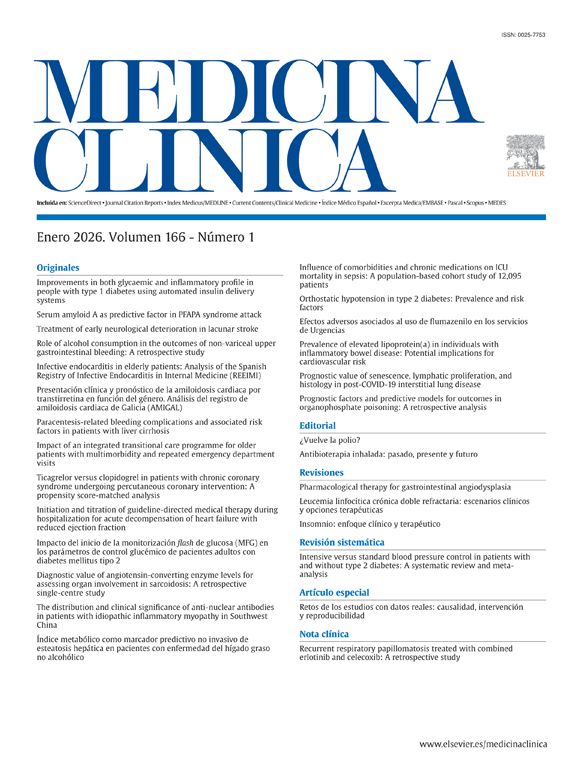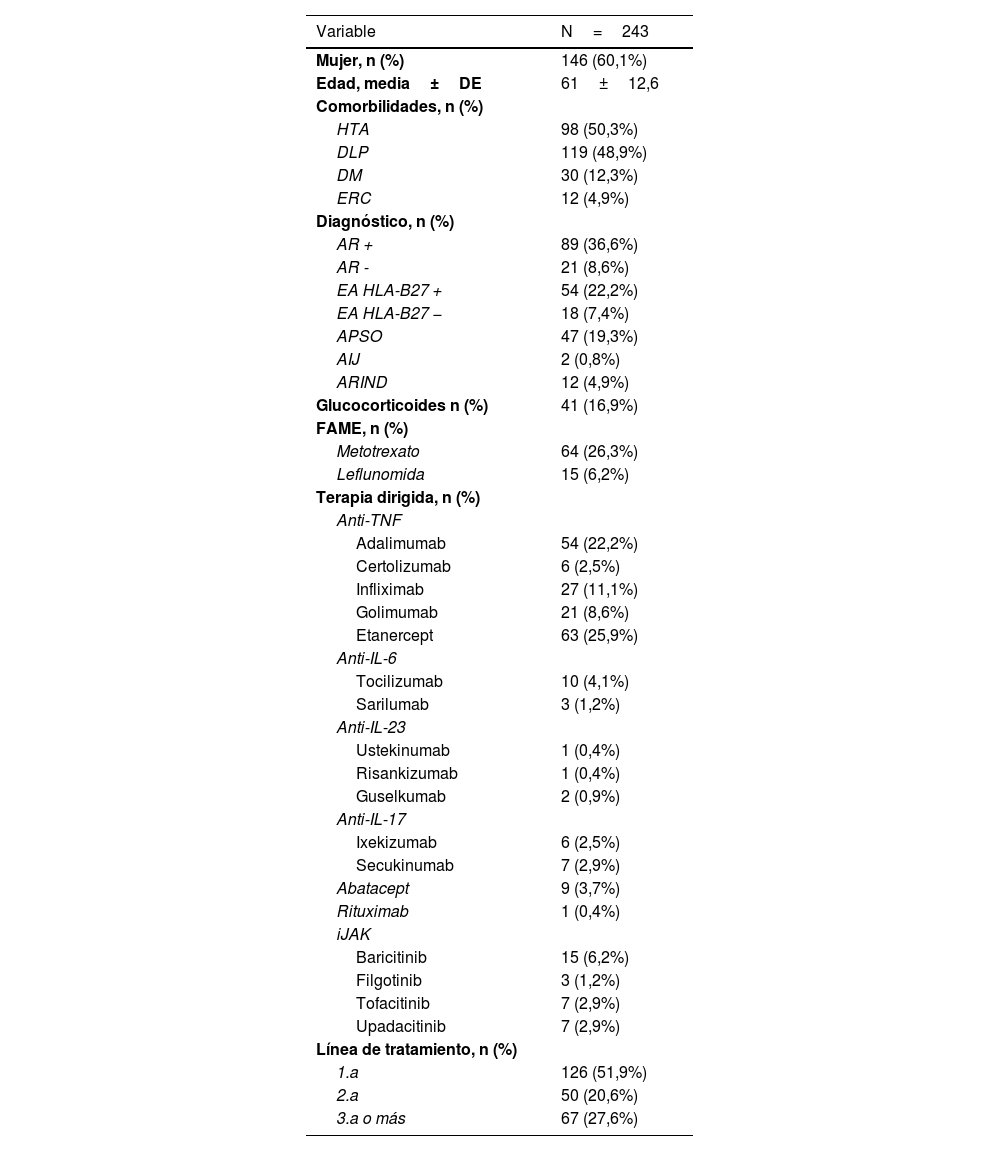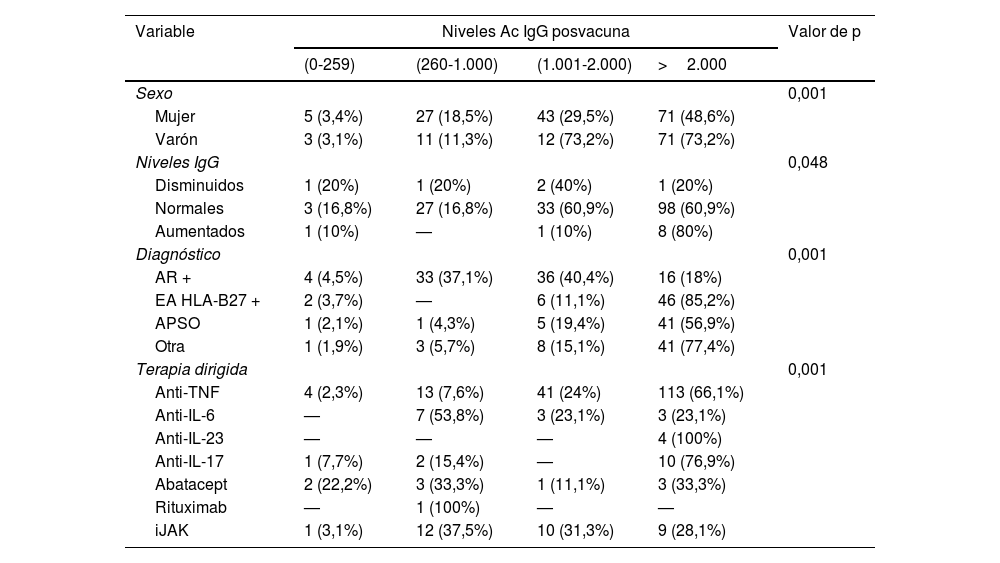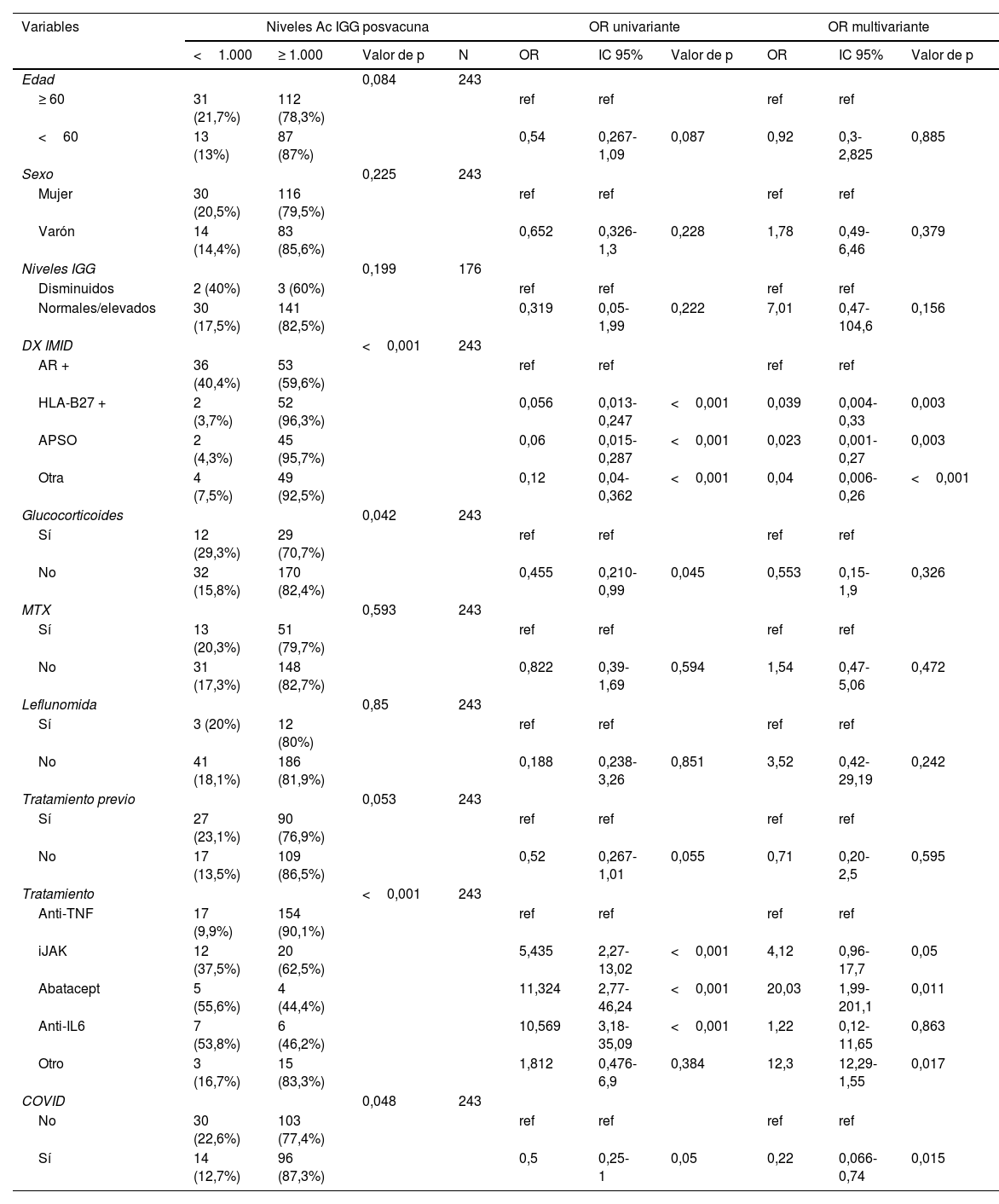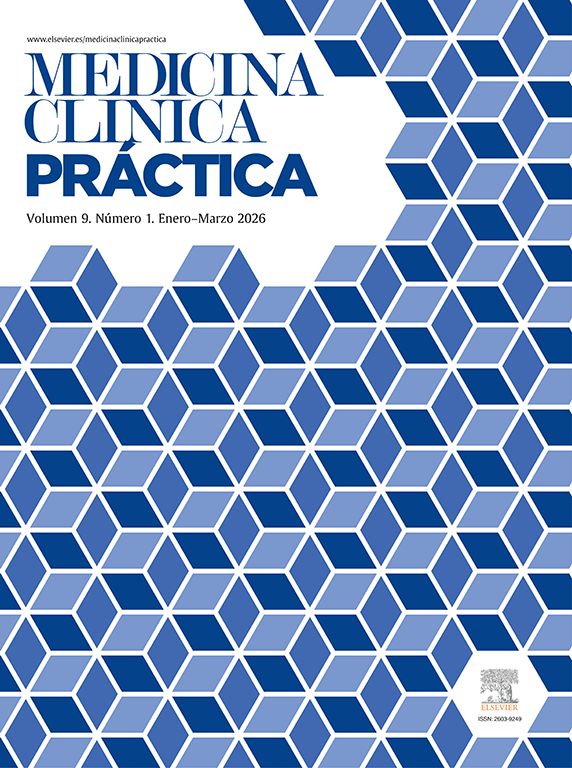En general, las vacunas contra el COVID-19 han mostrado un buen nivel de eficacia y seguridad, pero en los pacientes con enfermedades inflamatorias inmunomediadas existen datos contradictorios respecto a la idoneidad de la respuesta inmune tras la administración de las mismas. El objetivo de este estudio es conocer y determinar la inmunogenicidad generada tras la administración de la vacuna frente al COVID en los pacientes con estas enfermedades y en tratamiento con terapias dirigidas.
Material y métodosSe realizó un estudio analítico, observacional y transversal en el Hospital Universitario Miguel Servet de Zaragoza (España) de los niveles de anticuerpos generados tras la administración de la 4.ª dosis de la vacuna frente al COVID-19 en los pacientes diagnosticados de enfermedades inflamatorias inmunomediadas y en tratamiento con terapias dirigidas.
ResultadosSe incluyeron un total de 243 pacientes. Solo un 3,3% de los pacientes mostraron una respuesta inmune posvacuna inadecuada. Se observó que los pacientes con artritis reumatoide seropositiva mostraban más riesgo de presentar niveles disminuidos de anticuerpos IgG posvacuna frente a otras enfermedades como la espondiloartritis B27 + (OR: 0,039) o la artritis psoriásica (OR: 0,023). Los pacientes en tratamiento con fármacos inhibidores del factor de necrosis tumoral presentaron un riesgo menor de generar niveles de anticuerpos IgG posvacuna disminuidos en comparación a otras terapias dirigidas como el abatacept (OR: 20,03) o los inhibidores de la JAK (OR: 4,12).
ConclusionesEl tipo de enfermedad inflamatoria inmunomediada y la terapia dirigida usada influyen en la respuesta inmune generada tras la vacunación frente al COVID-19. El diagnóstico de artritis reumatoide seropositiva y el uso determinadas terapias dirigidas como el abatacept o los inhibidores de la JAK influyen de forma negativa en la formación de anticuerpos IgG tras la vacunación.
On the whole, vaccines against COVID-19 have shown a good level of efficacy and safety, but in the subgroup of patients with immune-mediated inflammatory diseases there are contradictory data about the existence of an inadequate immune response after the administration of the vaccine. The objective of this study is to know and determine the immunogenicity generated after the administration of the vaccine against COVID-19 in patients with these diseases being treated with targeted therapies.
Material and methodsAn analytical, observational and cross-sectional study was carried out at the Miguel Servet University Hospital in Zaragoza (Spain) of the Ab levels generated after the administration of the 4th dose of the COVID-19 vaccine in patients diagnosed with with immune-mediated inflammatory diseases and being treated with targeted therapies.
ResultsA total of 243 patients were included. Only 3.3% of patients showed an inadequate post-vaccine immune response. It was observed that patients with seropositive rheumatoid arthritis showed a higher risk of presenting decreased post-vaccine antibodies IgG levels compared to other diseases such as spondyloarthritis B27 + (OR 0.039) or psoriatic arthritis (OR 0.023). Patients treated with tumor necrosis factor inhibitors drugs had a lower risk of generating decreased post-vaccine antibodies IgG levels compared to other targeted therapies such as abatacept (OR 20.03) or JAK inhibitors (OR 4.12).
ConclusionThe type of immune-mediated inflammatory diseases and the targeted therapy used influence the immune response generated after vaccination against COVID-19. The diagnosis of seropositive rheumatoid arthritis and the use of certain targeted therapies such as abatacept or JAK inhibitors influence negatively in the formation of antibodies IgG after vaccination.



